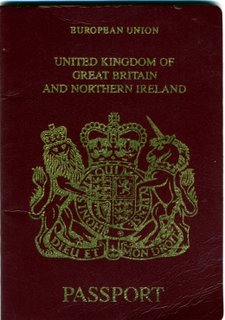
Manek Dubash writes :
'IBM researcher Michael Osborne, whose job is research into secure ID cards, slated the UK government’s ID cards scheme on the grounds of cost, over-centralisation, and being the wrong tool for the job. Based in Big Blue’s Zurich research labs, where the scanning tunnelling microscope was invented and won its inventors a Nobel Prize, Osborne said that the problem is neither the cards nor the fact that the scheme is intended to use biometric technology.
The big issue is that the UK government, plans to set up a central database containing volumes of data about its citizens. Unlike other European governments, most of whom already use some form of ID card, the central database will allow connections between different identity contexts - such as driver, taxpayer, or healthcare recipient - which compromises security. Centrally-stored biometric data would be attractive to hackers, he said, adding that such data could be made anonymous but that the UK Government’s plans do not include such an implementation. '
See full story here: Techworld
To keep up with the latest developments on this topic, visit NO21D - the main site for the national campaign against ID cards and the National Identity Register. It is not affiliated to any political party and is funded almost entirely by voluntary donations. Founded in 2004, it aims to bring together people and organisations from all sections of the community in opposition to the Government's plan for compulsory registration, fingerprinting and lifelong tracking of all UK residents by means of a centralised 'identity' database. They want the public to be properly informed about a scheme that has kept invisible by spin, but that aims to transform all our lives. NO2ID is supported by over 70 organisations, including unions, political parties, and local
councils-and more than 30,000 individuals. They already have around 100 local groups across the UK. You can find the nearest one here
WHY YOU SHOULD RENEW YOUR PASSPORT NOW
Passports will change soon in order to force you to have a government ID card. On March 30th, the Identity Cards Act 2006 became law. Among other things this lets the Home Office turn your passport into a ‘designated document’ for its ID card scheme. That means that as soon as it is can—maybe in 2008 or 2009, but possibly before—the new ‘United Kingdom Identity & Passport Service’ (UKIPS) will refuse to renew your passport unless you attend an official interview and agree to be fingerprinted and give a wide range of personal information for a “National Identity Register” database.
The National Identity Register (NIR) will be the biggest store of personal data in the world. And once you are on it, you are on it for life. You will be required to update any details about you that change for the official record, or be fined. They want to make sure they know where you live. Every use of your passport will be recorded on the NIR—when you travel and whenever you use it to verify your identity, say at the bank or to get a job. That information may be seen by police, tax, housing, and benefits officials and thousands of other Government agencies. It may even be checked by private companies.
But for now you have a choice. The current rule is that you can renew your passport at any time. NO2ID got the Home Office to make its policy clear, and you can read it on the new UKIPS website: “You do not have to wait until your passport is nearly expired to renew it, but we can add no more than 9 months unexpired validity from the old passport to the new one. You can renew your passport whenever you wish, but you must pay the full fee and no refund can be given for the unexpired validity in the old passport”.
In other words, you can buy 10 years’ freedom from compulsory Registration on the NIR for just £51, right now. You may get slightly longer than 10 years on your new passport—but that’s entirely up to the Home Office. The government says the price will rise to at least £93 when it starts issuing ID cards. But the way you can get a passport will change from as early as October.
That’s why we suggest you act now and “renew for freedom”.
No comments:
Post a Comment